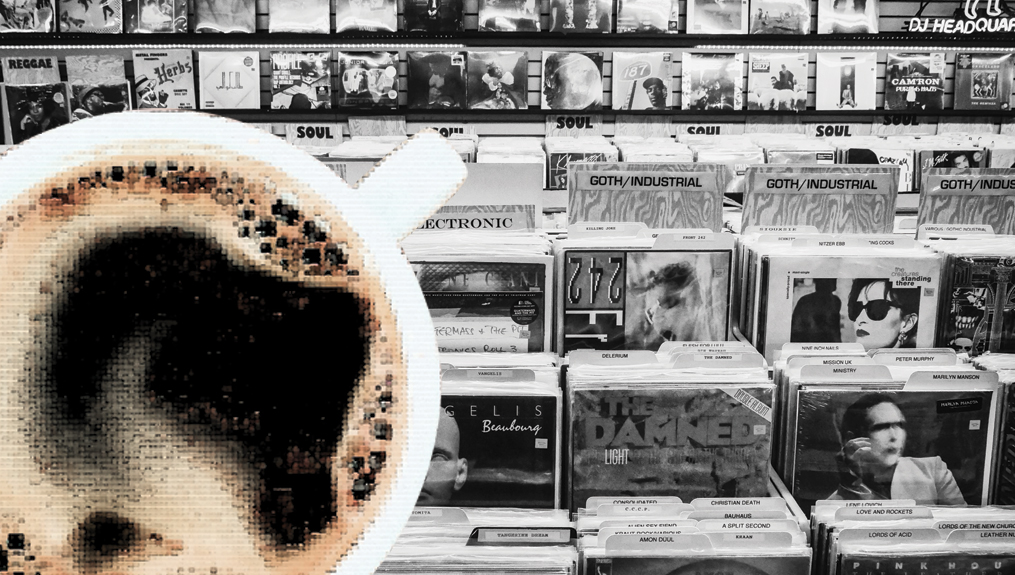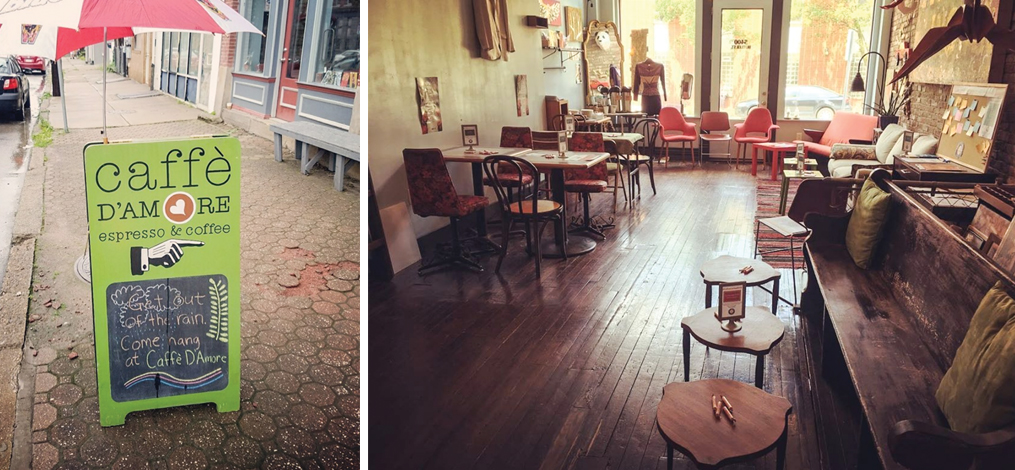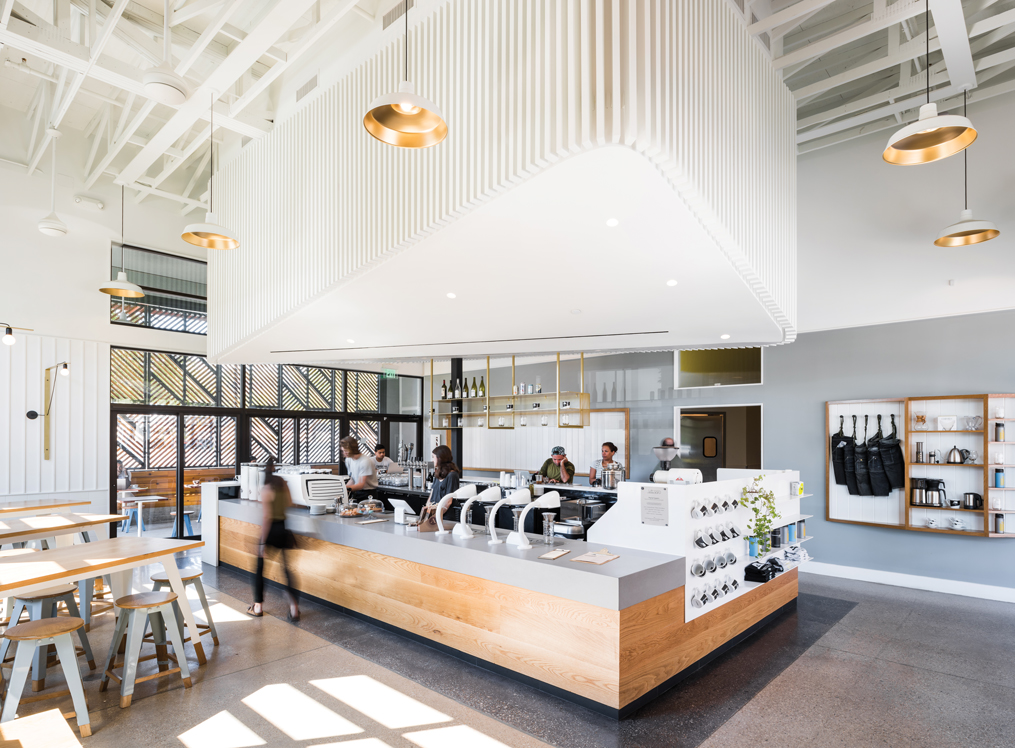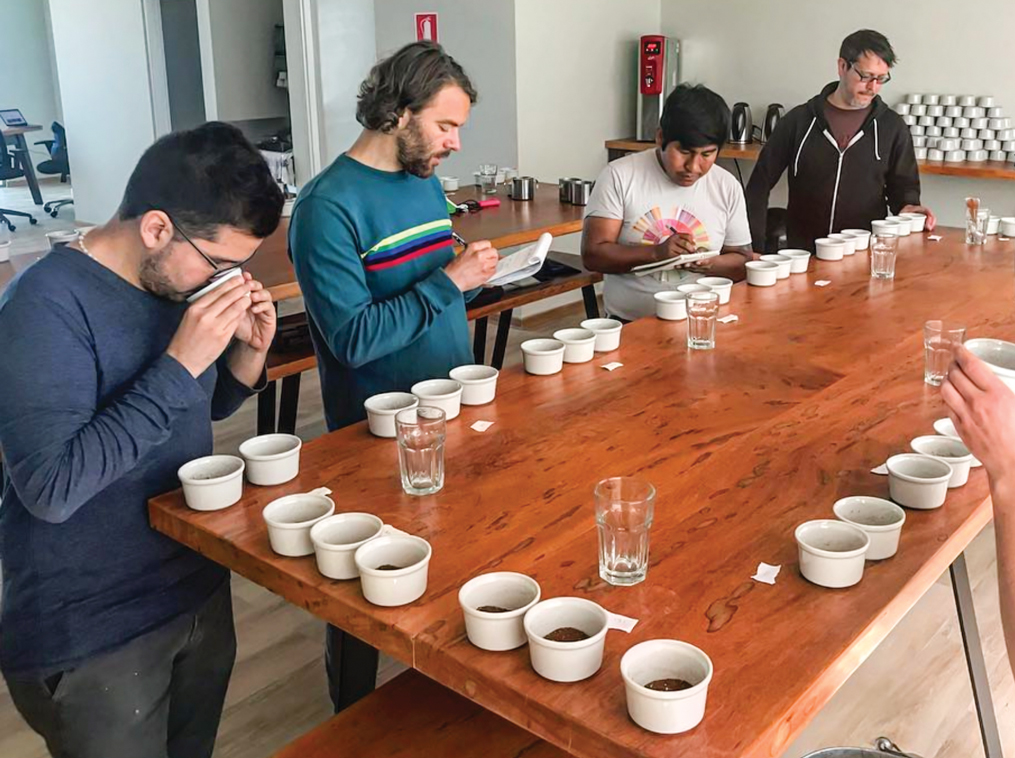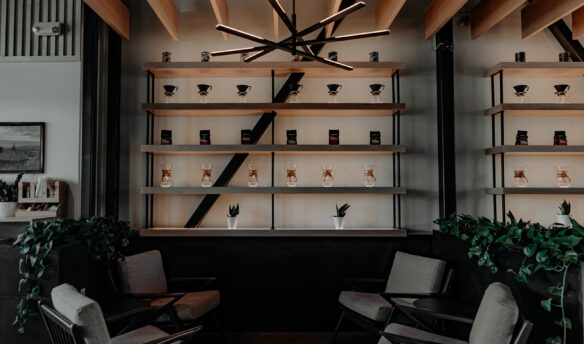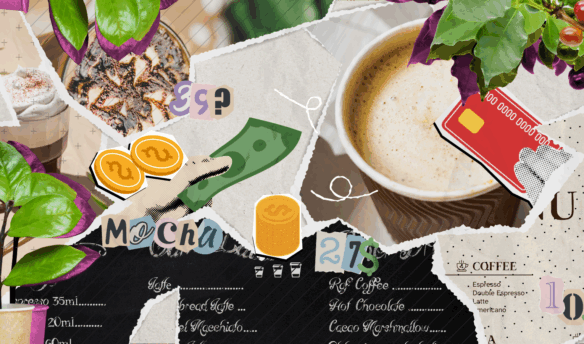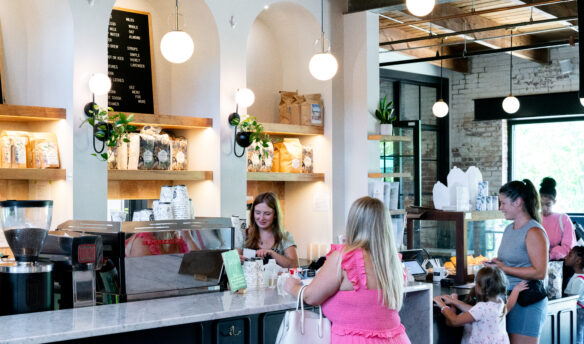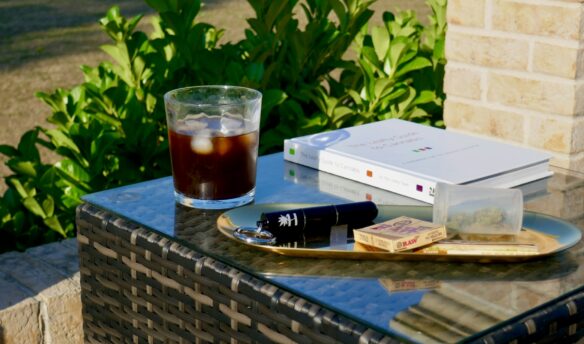For Sarah Walsh, music is as much of a staple of life as food, good friends, and great coffee. A 10-year veteran of the specialty coffee industry, the owner of Caffe d’Amore in Pittsburgh’s changing Lawrenceville neighborhood has much to say about the role of songs in café settings.
For Walsh and other café owners, music tracks are that continuous backbeat under a busy coffee business, a statement of the space, and an exclamation of the people working there. More than just a mood setter, curated music collections can propel the energy throughout a day, she says.
The in-house soundtrack, in other words, is part of building the brand that small business owners work hard to create.
“There’s a lot of experimenting with different music and seeing how it affects the people there,” Walsh says of her shop, which sits on a rapidly revitalizing thoroughfare of the city’s east end. “Sometimes it feels like a real-time kind of playfulness in terms of seeing how folks respond to the music.
“When we find in the midst of all that experimenting and juggling the business day,” she adds, “something that really works for everybody, it’s a real win-win because our staff likes it and our customers like it.”
Finding Something For Everyone
Today’s pervasive high-speed internet and unlimited music streaming services are as common as smartphones, so employees can play almost any kind of music for hours without a second thought. But those assets can also pose a predicament: What should owners consider when playing content from Spotify, the Google Play store, Pandora, and other services? Is a retail-ready service such as Cloud Cover Music or Rockbot—many of which include licenses for retail spaces and other businesses—as versatile and adaptable to the mood and environment? And will customers notice, especially when many are lost on their laptops and phones anyway?
Café owners opening either their first shop or their fifth may need to consider those questions and others, including the costs above and beyond the basic audio equipment.
Most music services offer affordable pricing tiers (many are under $25 per month) and allow as much customizing as any hip mixtapes or digital playlists. They include licensing for commercial businesses and help users navigate the concerns about copyright permissions in public spaces. (Free trial periods can help subscribers determine which service is right for them.)
Art & Science
The music mix, after all, is just one of the key considerations for anyone managing a retail coffee business, particularly when so many other elements of the hospitality industry can be so time-consuming.
“As far as music in our cafés goes, we try and make it a non-issue…as in, I’d rather our staff not worry about the music that is playing so they can focus on the guest,” says Paul Henry, general manager of Houndstooth Coffee, a store with multiple branches in Austin and Dallas. He and his brother, Sean Henry, also operate Tweed Coffee Roasters and the cocktail bar Jettison, both in Dallas.
The Henry brothers incorporated Sonos sound systems in each Houndstooth café to provide that tuneful backdrop throughout each day and into the evenings. Each location occupies a different architectural space, so it was important for them to find an audio solution that worked well while remaining relatively out of sight.
“We say the music ought to meet the energy in the café, then raise it just a little bit,” says Paul Henry. “We want the café to be lively but not over-the-top.”
Some owners use more of a crowdsourcing approach. For example, at Pittsburgh’s Caffé d’Amore, Walsh says baristas can select what they want to play during their shifts.
“Music is a constant at the shop, and we regularly get feedback that people like the music that is played,” Walsh says of her community-minded shop. “I need to give a major shout-out to our staff who are either musicians or have incredible music taste—they do a great job picking music, and I piggyback off their playlists all the time.”
Let The Music Move You
That interplay can yield positive sales results along with stoking cool vibes. The psychological impact of music on customer actions has been employed and analyzed for decades by apparel retailers, restaurants, and other retail sectors. The energy imparted from carefully curated selections can drive a mood, which is often tailored to target a particular demographic or customer traffic pattern.
A 1999 study on the influence of music tempo by researchers in Scotland analyzed the effects of “atmospherics” and the psychology of environment. Scholars Clare Caldwell and Sally Hibbert of a public research university in Glasgow dissected music’s effects on restaurant patrons’ behaviors. Their study found specific ties between the tempo of music played in these spaces and the levels of time and money spent by guests.
Those findings might not surprise someone like Adam McClellan, who probably spends as much time at specialty cafés and roasting centers—not to mention the world’s coffee farms and processing centers—as anyone in the industry. His current work with California-based importer Red Fox Coffee Merchants and his previous position at Stumptown Coffee Roasters has taken him to Ethiopia, Colombia, and, more recently, the emerging coffee regions of Mexico. He’s even worked at an organic ginger farm in Hawaii.
It’s no surprise when McClellan talks as thoughtfully about the sensations of the music filling the café air as he does terroir and the world’s greatest single origins. It’s all in the details for the Wisconsin native, as observed during sourcing trips and while working at coffee shops.
Sense of Place
Over the years, McClellan’s love of food, drink, and music has helped him connect the world’s coffee regions with the indigenous music traced to those lands.
McClellan is based from his home in Portland, Oregon, and with Red Fox headquartered in Berkeley, it’s partly why he often works from cafés. That’s why it isn’t a stretch to understand how the music on rotation in his favorite shops helps influence where he decides to go on a given day.
“I like to go into places that have soul,” says McClellan, noting he routinely opts for cafés with reputations for a specific approach to music rather than those with pre-programmed radio formulas—even if it’s a recurring mix of the same artists or styles.
“I feel like where the baristas who can play their own music… it’s really obvious,” McClellan says. “Other places where it’s satellite, mainly, it really hits me right away. I can tell even if [the station] doesn’t have ads or anything if it’s satellite radio. It’s just a little less soulful to me. Even if it’s super-loud or music I don’t like, I still appreciate that more than going to places trying to appeal to everyone.”
The net result often “becomes a conversation starter,” adds McClellan. “What I sometimes get frustrated with some business owners are the people who just post up in cafés for hours and have their headphones on. Just being [in] front of your laptop already kind of closes you down, but then putting your headphones on… there’s just like no room for conversation. I think most café owners want a community vibe, a feeling where people are chatting and talking and meeting.”
“Recently, I found I almost don’t want to talk coffee in some places,” says McClellan. “I’d rather talk about the music or whatever else is going on, and maybe find out the barista is into wine or something and maybe talk about that. Music is one of those places to start a conversation. If they put it on and they know, then you can have that conversation… when it feels like the baristas are even happier when they’re playing their own music, and they can tell the people in the cafe are kind of ‘vibing’ with it a little bit.”
At his Texas locations, Paul Henry says individuals are always welcome to showcase their music tastes. Austin and Dallas each have their heritage of great artists and music styles, and Austin touts itself as the nation’s live music capital. It’s all part of why customers might hear anything from regional outlaw country artists one day and modern independent rock on another.
But ultimately, coffee is largely about hospitality; a thought Henry bears in mind as he reflects on café build-outs during Houndstooth’s growth spurts in recent years.
“I just try to remind staff that it’s not about them,” he says. “It’s about the guest.”
This article was originally published on October 30, 2019 and has been updated to meet Fresh Cup’s current editorial standards.



